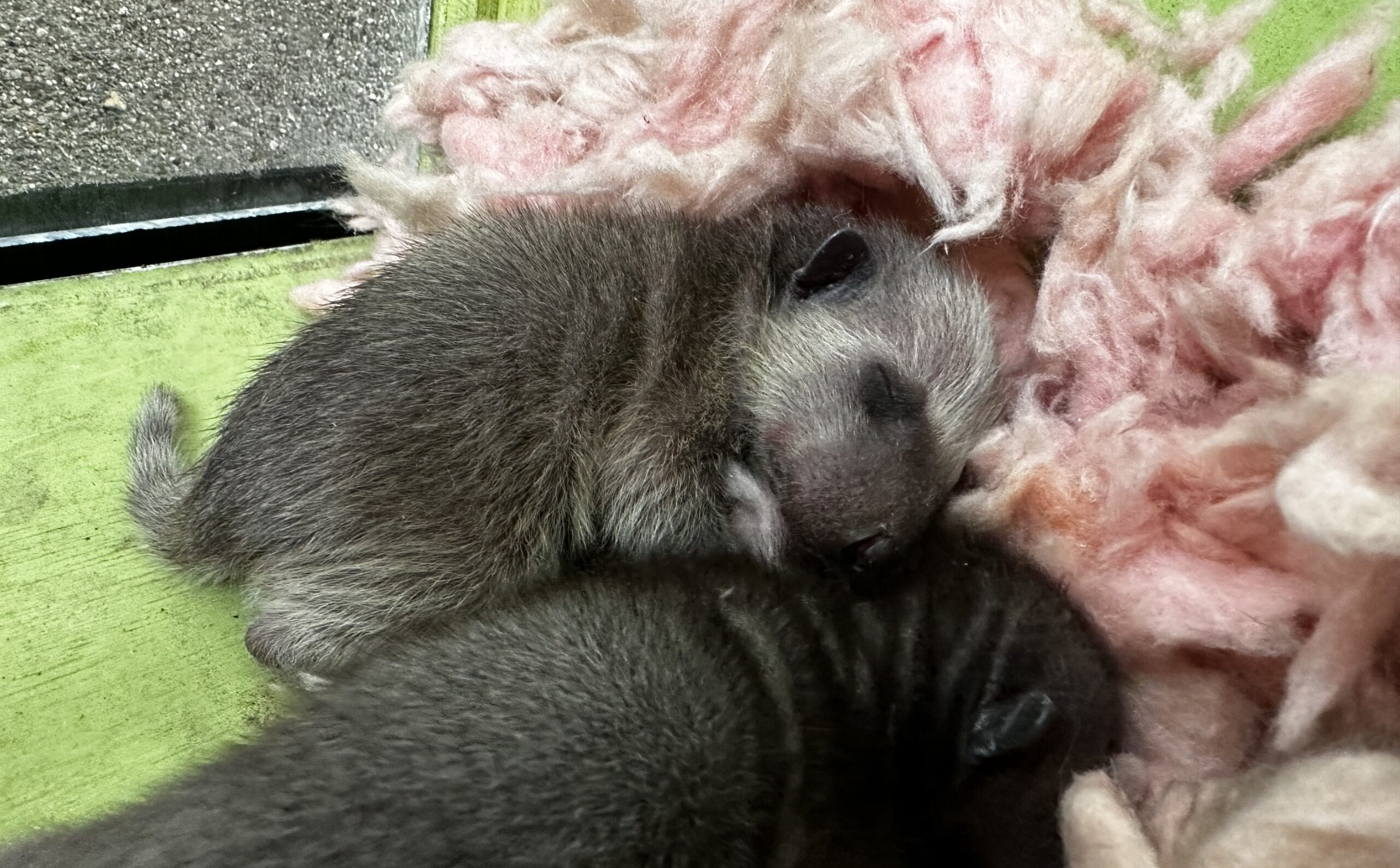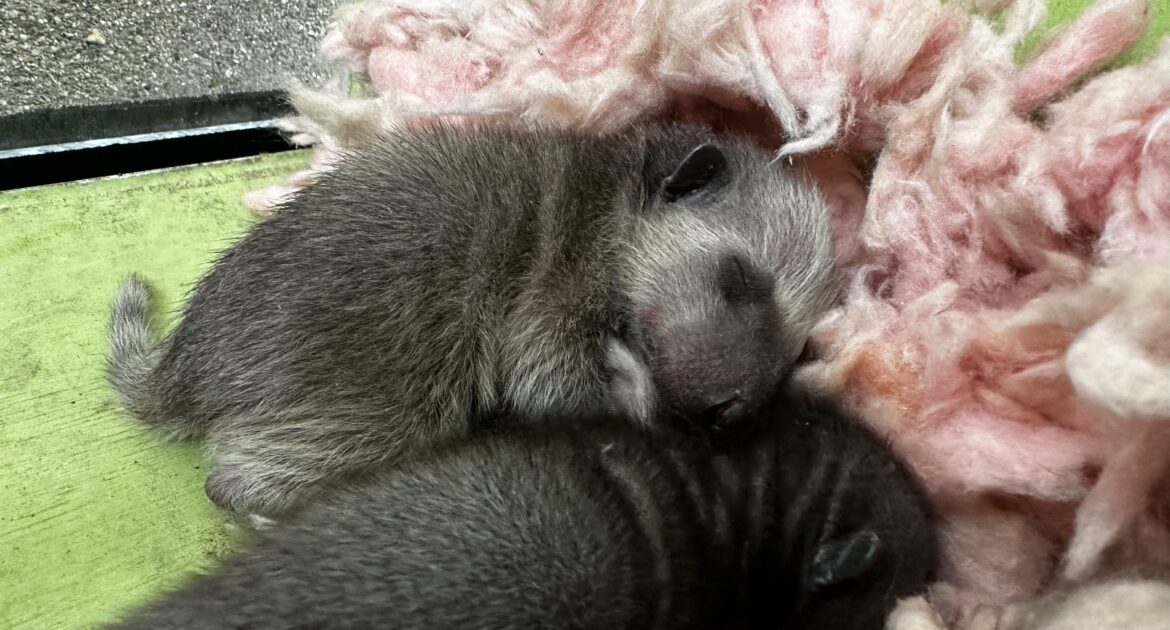At Skedaddle Humane Wildlife Control, we know how much Hamilton pet owners care about their furry companions. Unfortunately, pets don’t always sense the looming danger of a rabid raccoon in the way that humans might. A joyful romp in the yard or a curious sniff at an unfamiliar animal could result in a risky encounter with potentially life-threatening consequences. That’s why it’s crucial to understand the risks, spot the warning signs, and take practical steps to protect your pets from rabid raccoons.
Below, we’ll share useful, actionable tips to help keep your pets safe and reduce the chances of encountering a rabid raccoon in your neighbourhood.
How to Spot a Rabid Raccoon
Recognizing the signs of rabies in raccoons could save your pet’s life. While not all raccoons show drastic symptoms, some behaviours often signal a rabies infection. Watch for the following signs in raccoons around your property:
- Aggression or unprovoked attacks
- Lethargy and lack of awareness
- Drooling or foaming at the mouth
- A strange lack of fear of loud noises or human presence
- Disorientation or appearing confused
- Difficulty walking or signs of partial paralysis
If you notice any of these behaviours in a raccoon, it’s critical to avoid contact and act swiftly by contacting wildlife control professionals like our team at Skedaddle. Never try to handle a potentially rabid raccoon yourself, as rabies can be transmitted through bites and scratches.
Why Your Pets Are at Risk
Pets are naturally curious, and domesticated animals may not recognize a wild raccoon as a danger. This is especially true for dogs who love sniffing, chasing, or investigating anything in their path. Cats, too, might approach a raccoon out of curiosity. Unfortunately, these encounters can be dangerous.
Rabies spreads through saliva, meaning a bite from an infected raccoon could transmit the virus to your pet. Once your pet is infected, there’s also a risk to your own health and that of your family. Humans can contract rabies through contact with the saliva of infected animals, often indirectly through pets. This makes it vital to prevent interactions between your pets and wildlife.
Steps to Protect Your Pets From Raccoons
Fortunately, there are effective strategies to protect your pets from rabid raccoons and other wild animals:
- Keep Vaccinations Up to Date: The rabies vaccine is the first line of defence for your pets. Ensure your dog or cat is vaccinated regularly as recommended by your veterinarian.
- Supervise Outdoor Time: Don’t leave your pets outdoors unattended, especially at night or during dusk and dawn when raccoons are most active.
- Secure Trash and Outdoor Food: Raccoons are drawn to food scraps, so make sure your trash bins are tightly sealed and outdoor pet food is put away after meals.
- Build a Pest-Resistant Yard: Check your property for any entry points raccoons might use, such as holes in fencing or gaps under sheds. Sealing up potential dens helps prevent raccoons from setting up camp on your property.
- Limit Attractants: Remove fallen fruit, birdseed, or any other food sources that may tempt raccoons onto your property.
By making a few adjustments to your outdoor environment, you can reduce the likelihood of a raccoon encounter and keep your pet much safer.
What to Do if Your Pet Encounters a Raccoon
Even with precautions in place, surprises can happen. If your pet interacts with a raccoon, it’s essential to act quickly.
- Restrain Your Pet: If safe to do so, keep your pet from further engaging with the raccoon or running after it.
- Avoid Contact with the Raccoon: Do not attempt to chase or handle the raccoon yourself, as this could expose you to rabies.
- Inspect Your Pet: Look for any signs of bites, scratches, or saliva on your pet’s fur. Even the smallest wound could put them at risk.
- Contact Your Vet Immediately: Inform your veterinarian of the situation so they can administer post-exposure treatment or booster vaccinations if needed. Time is crucial when it comes to preventing rabies.
Remember to wash your hands thoroughly and avoid touching your pet’s wounds until they’ve been seen by a professional.
Understanding Raccoon Behaviour
Not all daytime raccoon sightings mean trouble. However, distinguishing between healthy and potentially rabid raccoons can be tricky. Some behaviours, such as foraging during the day or appearing comfortable around humans, could be displayed by both healthy raccoons and those infected with rabies.
For instance, raccoons are typically nocturnal, but it’s not unheard of for a healthy raccoon to venture out during daylight to search for food, especially in areas with abundant human activity. This makes it hard to determine whether a raccoon is sick or simply behaving unusually.
As experts, the Skedaddle team knows how to recognize subtle differences in raccoon behaviour. We have the training, experience, and tools to assess the risk level and take action to remove wildlife from your property safely and humanely.
Why Humane Raccoon Removal is Crucial
When it comes to wildlife control, humane practices are vital. At Skedaddle, we understand the importance of protecting animals while ensuring your home stays safe and secure. Our methods prioritize removing raccoons as compassionately as possible without causing harm. Humane removal also reduces the spread of diseases like rabies, as we minimize direct human or pet contact with wildlife.
Once raccoons are removed, our team takes extra steps to seal up any entry points, sanitize affected areas, and provide recommendations to prevent future infestations. This approach not only keeps your pets safer but also promotes harmony between humans and local wildlife.
Preventing Rabies in Hamilton
Rabies is a rare but serious concern in Hamilton, Ontario, and other urban centers. Ensuring that your home and pets are safeguarded against rabid raccoons plays a huge role in preventing the spread of this disease. By working together as a community and addressing wildlife concerns proactively, we can reduce the risk for everyone.
Here’s what you can do beyond protecting your immediate household:
- Educate Your Neighbours: Encourage those in your community to vaccinate their pets and avoid feeding wildlife.
- Report Strange Behaviour: Alert local wildlife authorities if you notice a raccoon or any wild animal behaving unusually.
- Encourage Professional Control: Share the importance of humane wildlife control services like Skedaddle to address infestations safely and responsibly.
Contact Skedaddle for Help
If you’ve noticed signs of a rabid raccoon near your Hamilton property, don’t wait until it’s too late. Protecting your pets and loved ones from potential exposure to rabies is as simple as calling in the experts. The Skedaddle team is equipped with the right tools and knowledge to handle wildlife removal safely, effectively, and humanely.
Reach out to us today for help ensuring your property is wild-animal free and your pets stay safe and happy. Your peace of mind starts with creating a secure environment for all members of your household, both human and furry.
FAQ’s
What should I do if I see a raccoon acting strangely in my yard?
If you notice a raccoon showing signs of rabies, such as aggression, lethargy, or drooling, avoid contact at all costs. Keep pets and children indoors and call a professional wildlife control service like Skedaddle. Our experts can assess the situation and remove the raccoon safely and humanely.
How do I know if a raccoon near my home is rabid?
Rabid raccoons often display unusual behaviour such as being unafraid of humans, disorientation, difficulty walking, or foaming at the mouth. However, some behaviours, like foraging during the day, can also be seen in healthy raccoons. It’s best to contact wildlife professionals to determine the appropriate course of action.
Why is humane wildlife removal important for dealing with rabid raccoons?
Humane wildlife removal minimizes stress and harm to the animals while ensuring your property is safe from potential threats. Experts at Skedaddle use compassionate methods to remove wildlife, seal entry points, and prevent future infestations, keeping both animals and your family safe.




